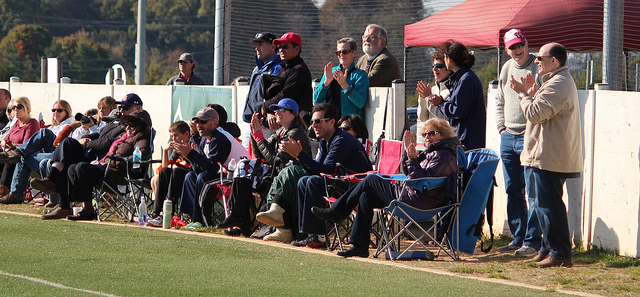
After the holidays, many parents breathe a collective sigh of relief. The holidays and their many challenges — travel, presents, and time with extended family — are so stressful that they make people wonder whether raising children has always been this hard. A recent The New York Times piece by Claire Cain Miller confirms that parenting has indeed gotten more time-consuming and expensive. Miller draws upon an arsenal of sociological research to illustrate how and why parenting has become so relentless.
Much of the pressure parents feel stems from wanting to pass on advantages to their children — especially since American children today are less likely to be as affluent as their parents. According to Phillip Cohen,
“As the gap between rich and poor increases, the cost of screwing up increases. The fear is they’ll end up on the other side of the divide.”
As a result, parents use “intensive parenting,” a child-rearing style that demands a great deal of their own time and resources. Sharon Hays’ describes intensive parenting as “child-centered, expert-guided, emotionally absorbing, labor intensive and financially expensive.” And according to Jennifer Glass, intensive parenting is rooted in the American view of child rearing as an individual — not societal — task, though it has begun to gain popularity in England and Australia.
But not all parents engage in these efforts equally, nor are they expected to. Jessica Calarco explains that intensive parenting allows affluent white mothers to ensure their children remain advantaged in society. Middle-class black mothers also use intensive parenting strategies, but for different reasons. According to Dawn Dow,
“They’re making decisions to protect their kids from early experiences of racism. It’s a different host of concerns that are equally intensive.”
The demands of intensive parenting affect mothers’ lives far more than fathers. Liana Sayer’s research on American time use diaries shows that the time women spend parenting cuts into their sleep, time alone with their partners and friends, leisure time and housework. Moreover, while fathers today have increased the amount of time they spend with their children, mothers still spend significantly more.
So, drawing on research by over a dozen sociologists, Miller shows us that we are not wrong to find intensive parenting problematic. Not only does this parenting style disproportionately burden lower income families — and mothers in particular — but we’re not even sure it is effective in passing advantages on to the next generation. By stressing the importance of individualistic approaches to parenting, we fail to seek structural solutions that could ease the burdens of working mothers. In the words of sociologist Caitlyn Collins, intensive parenting “distracts from the real questions, like why don’t we have a safe place for all kids to go when they’re done with school before parents get home from work?”




